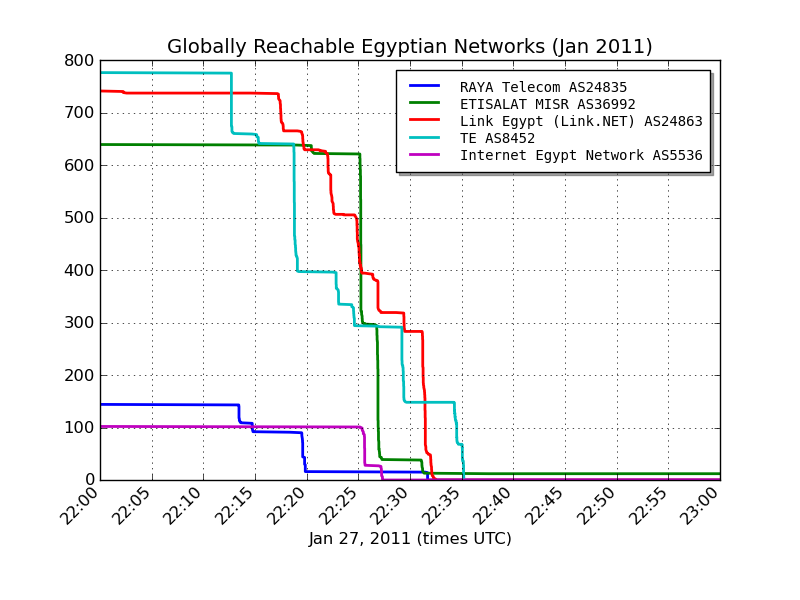Perhaps very much so planned in light of the given country, which has been in a state of emergency since 1967, the government had access to the internet entirely cut off from its citizens last week. From days of allegedly denying to be behind the block of Facebook and Twitter and saying that it supported free speech, the Egyptian government pulled an astonishing move which is unprecedented and yet almost unimaginable for a state that has relatively a strong Internet economy and an equity market that is one of the most developed in the region.
So how did the Egyptians just turn off the Internet? Does Mubarak actually have a kill switch in Abdeen Palace? Unlikely. The real assumed observed way was that someone from the top called each major network (Autonomous System) and directed them to take themselves offline. Observed here by Renesys, an Internet monitoring body, they listed the shutdown times of 5 of the 6 major networks in Egypt:
First impressions: this sequencing looks like people getting phone calls, one at a time, telling them to take themselves off the air. Not an automated system that takes all providers down at once; instead, the incumbent leads and other providers follow meekly one by one until Egypt is silenced.
Essentially, the government has taken two approaches; it disabled DNS lookup of addresses that ends in .eg – which is the equivalent of as if the postal service had lost the address of everyone – and any outgoing or incoming packets with a specific address will not go though their Border Gateway Protocol. They could have just taken out the country’s sole IXP but the downstream impact could have aggravated their neighbors igniting all sort of other conflicts.
What should be of most apparent to anyone is that complete reliability and uttermost assurance of the Internet as a haven for free speech and democracy is insignificant and can be easily undermined – particularly in a country where there’s a high level of governmental control – where they can just switch off access to the rest of the world.

